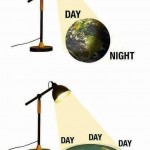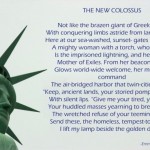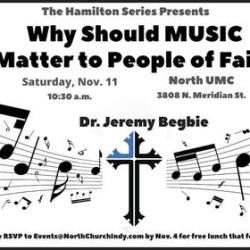Another piece that can be included on my long list of musical settings of Biblical texts is Ernst Krenek’s setting of Lamentations. I’m not sure how I neglected it (not that I needed more musical examples for the class). Krenek’s piece is mentioned in the Fortress Commentary on the Bible and the Oxford Encyclopedia of the Books of the Bible. It strikes me as less “lamenty” that other settings, such as the one by Canadian composer Peter-Anthony Togni, excerpts of which can be found on YouTube. There is a dissertation about the piece available online, and its relationship both to 20th century twelve-tone music and renaissance predecessors. I know that some of you will have heard the Book of Lamentations read for Tisha B’Av. Was any musical setting of the text also part of the observance of the holiday?
What I wrote above about Krenek’s piece raises the question of what lamentation ought to sound like. Simply putting something in a minor key is not enough. I have written songs in minor keys, but only one of them is something that I would consider a lament. I wrote it after the quite sudden death of a much-too-young relative to an extremely rare illness. Arguably the words are key to something being a lament, and a lament can exist verbally even without music. But when talking about the lament as a kind of psalm or song, it is not only the words that give it a distinctive character, but the music must be fitting as well. And in some cases, it seems that a lament could exist without words. Surely the melody “Taps” is a lament of sorts, despite being a single melody played on a single instrument in unison. In that case, it seems as though it might well be the cultural baggage associated with the melody, the use of it at funerals – including on television, which has most definitely played a key role in mediating this bit of military music to the wider public’s consciousness.
We tend not to talk of “laments,” however, outside of the Bible and its reception today. But surely there are secular laments, songs that fall naturally into this genre even though I doubt that anyone uses the term for them. Sometimes they do, however – as in the case of Mahler’s Das klagende Lied, “The Song of Lament.” But in others, I suspect that we may have picked up on the sense of lamentation just listening to the music, even before we knew what the title was. Just listen to Peteris Vasks’ “Musica Dolorosa” and let me know whether you needed to find out the story behind the piece of music in order to recognize it as a lamentation without words.
Fortunately, for my class on the Bible and music, I can limit myself to biblical laments. But that doesn’t mean that I can set aside the question of how music and words come together to create an experience appropriate to mourning in the face of loss.
What music do you find to be an appropriate expression of grief? It can be biblical or not – it might still turn out to be something that I can usefully make reference to in my course on the Bible and music, by way of illustration or analogy. But I am, of course, especially interested in musical laments which at least echo, allude to, or draw on biblical imagery and phrases.





















